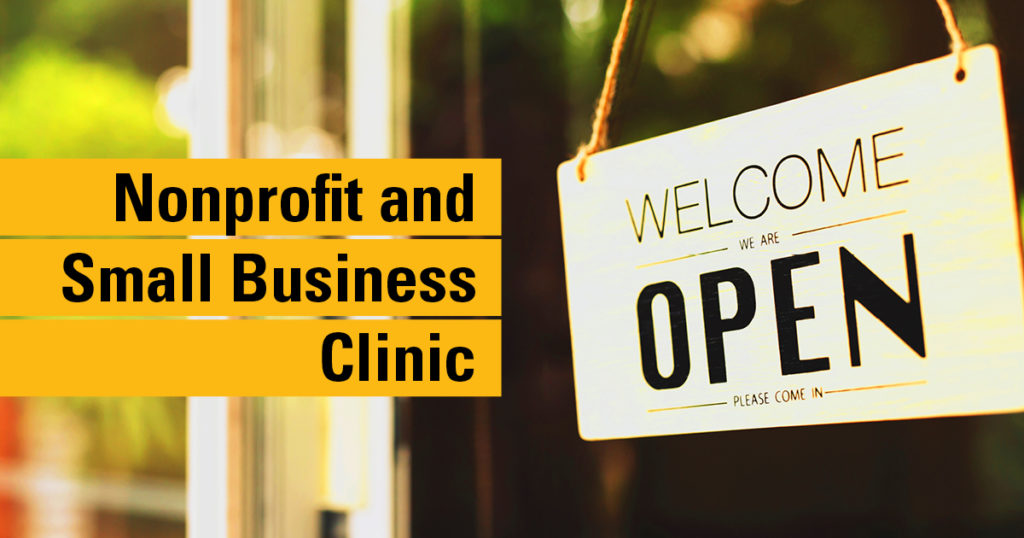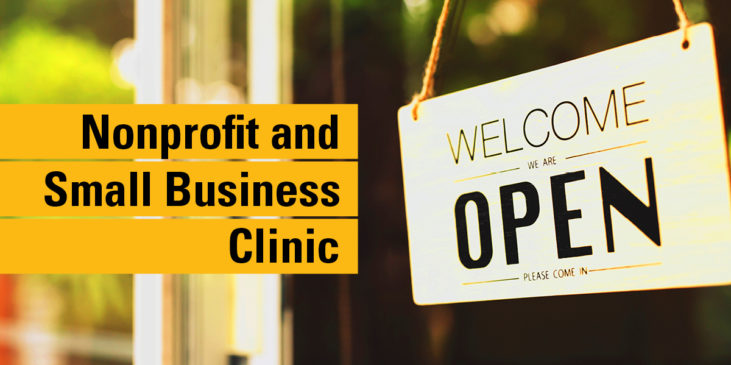
The Nonprofit and Small Business Clinic at New York Law School, led by Professor Gowri Krishna and Adjunct Professor Susan H. Chase, helps law students develop the knowledge and skills to handle a wide-range of transactional legal matters by providing free corporate legal services to nonprofit organizations and small businesses throughout New York City.
Clients of the clinic range from start-ups to more mature entities, and they generally come from or benefit low-income communities. The clinic helps prepare law students for work with organizational clients and introduces students to opportunities for transactional lawyers to further economic, environmental, racial, and social justice.
Helping Clients During the COVID-19 Pandemic
Last year, Alexis Bello 3L, David Escoto ’21, Shervica Gonzalez ’21, Hootan Kashi ’21, Yuriko Miyasaka ’21, Raquel Montagne ’21, Sade Reid ’21, and Kiriaki Tzanis ’21 advised a number of small business clients in the realm of lifestyle and design.
Clinic students worked with a designer whose business was expanding because of a demand for her services as offices adapted to new COVID-19 protocols. The clinic also worked with a client, “R,” who was able to turn his passion into a full-time job after he lost full time employment due to the pandemic. In addition to providing R with more traditional transactional legal assistance, clinic students drafted an “Influencer Agreement” to help R protect his business relationship with a social media influencer who was promoting his product. Clinic students also provided legal assistance to a worker’s co-op to help them resolve some contract difficulties caused by the COVID-19 pandemic.
In addition to handling matters for individual clients, the Nonprofit and Small Business Clinic partnered with the Interfaith Center of New York and the Wilf Impact Center for Public Interest Law to develop a comprehensive workshop on starting a nonprofit organization that was presented to community groups and community advocates. The clinic also continued their partnership and collaboration with the School’s PTO Trademark Clinic, recommending some clients who could benefit from additional counseling on potential trademark issues related to their businesses or organizations.
Looking Forward
This year’s clinic students—Carlos Anguiano 3L, Gumana Attal 2L, Brittany Bone 3L, Jude Farsi 3L, Brittany Hulbert 3L, Saraya Ivanova 3L, Michelle Kerrigan 3L, Natalia LaMorta 3L, Clare Lazar 3L, Luke Lorenzini 3L, Simi Parikh 3L, Meagan Smyth 4L Evening, Amanda Spoto 2L, and Ezekiel Thompson 3L Evening—are already engaged in working with clients who reshape business as usual. As in the past, many of the clinic’s clients are small businesses and nonprofits run by Black, indigenous, and people of color (BIPOC) leaders, who are turning to more democratic practices in their ownership or membership, such as worker-owned cooperatives or worker self-directed nonprofits. Some of these client organizations arose to fill in gaps as needed during and because of the pandemic, including a mutual aid network of Spanish-speaking women located in Sunset Park.
Much of the clinic’s work this year focuses on business planning and strategizing, researching relevant questions of law, and drafting legal documents for new organizations, led by BIPOC women, that address racial inequity or diversity, equity, and inclusion (DEI) initiatives. One client is a worker-owned collective of Black queer educators, facilitators, and activists. Another client is a Black women-led organization that provides social justice-centered training and education to create safer and more inclusive work environments. Clinic students are also working with an organization that seeks to amplify the voices of women of color entrepreneurs and end the generational wealth gap by creating a network of resources and connecting fellow entrepreneurs with mentors and businesses.
As part of a new initiative for the 2021–22 academic year, the Nonprofit and Small Business Clinic is partnering with the Law for Black Lives (L4BL) Movement Lawyering Squad. Through this partnership, the four participating clinic students get a mini-clinic experience within the clinic, learning about movement lawyering from L4BL sessions on various political education topics. They also work with current practitioners in the organization to conduct policy research and co-develop legal and educational resources for community-based movement organizations.
The hands-on training and transactional skills that clinic students gain through working with current practitioners and a wide-range of nonprofits and small businesses leaves them well prepared to address the challenges that animate business.

